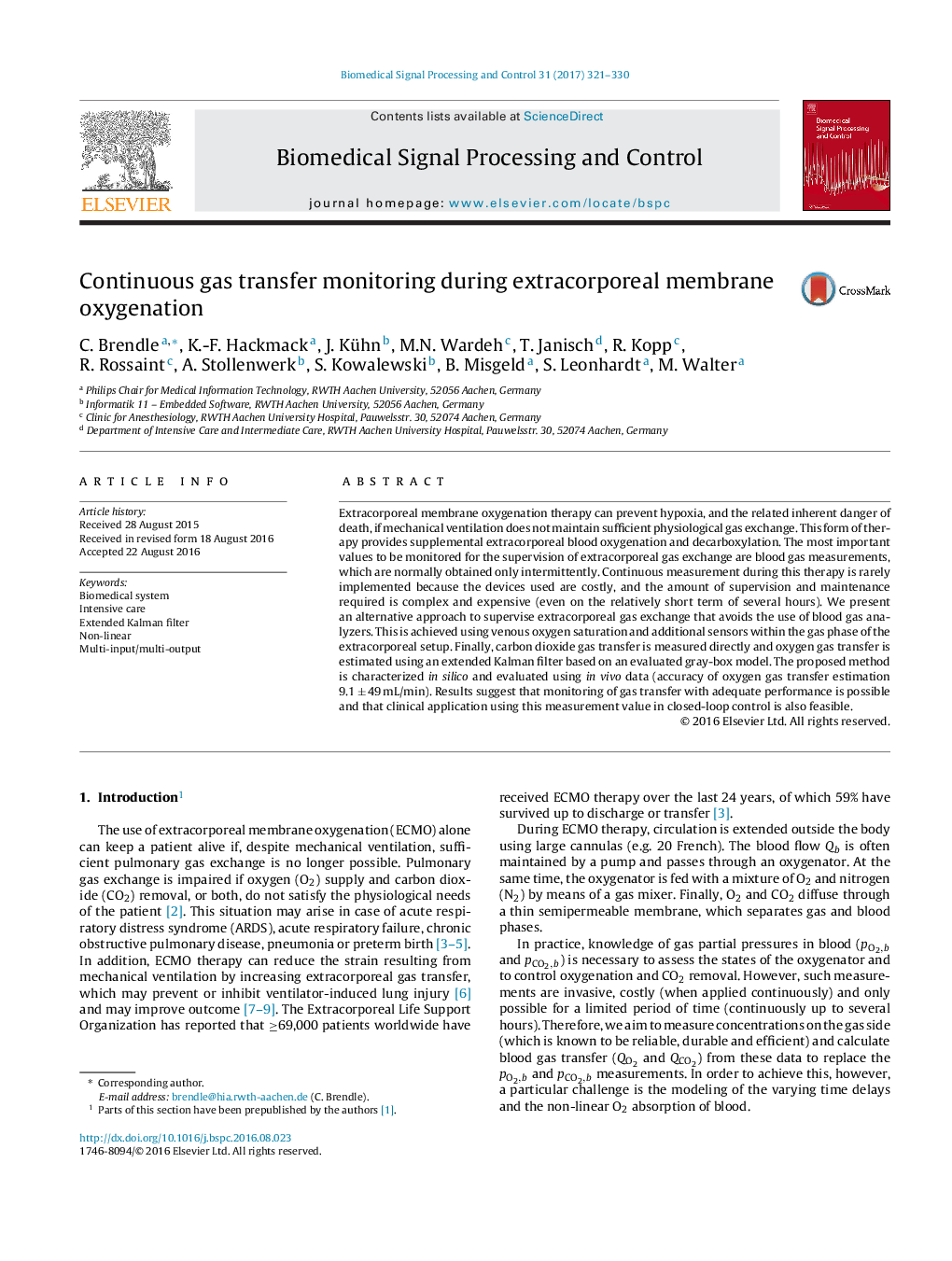| Article ID | Journal | Published Year | Pages | File Type |
|---|---|---|---|---|
| 6951112 | Biomedical Signal Processing and Control | 2017 | 10 Pages |
Abstract
Extracorporeal membrane oxygenation therapy can prevent hypoxia, and the related inherent danger of death, if mechanical ventilation does not maintain sufficient physiological gas exchange. This form of therapy provides supplemental extracorporeal blood oxygenation and decarboxylation. The most important values to be monitored for the supervision of extracorporeal gas exchange are blood gas measurements, which are normally obtained only intermittently. Continuous measurement during this therapy is rarely implemented because the devices used are costly, and the amount of supervision and maintenance required is complex and expensive (even on the relatively short term of several hours). We present an alternative approach to supervise extracorporeal gas exchange that avoids the use of blood gas analyzers. This is achieved using venous oxygen saturation and additional sensors within the gas phase of the extracorporeal setup. Finally, carbon dioxide gas transfer is measured directly and oxygen gas transfer is estimated using an extended Kalman filter based on an evaluated gray-box model. The proposed method is characterized in silico and evaluated using in vivo data (accuracy of oxygen gas transfer estimation 9.1 ± 49 mL/min). Results suggest that monitoring of gas transfer with adequate performance is possible and that clinical application using this measurement value in closed-loop control is also feasible.
Related Topics
Physical Sciences and Engineering
Computer Science
Signal Processing
Authors
C. Brendle, K.-F. Hackmack, J. Kühn, M.N. Wardeh, T. Janisch, R. Kopp, R. Rossaint, A. Stollenwerk, S. Kowalewski, B. Misgeld, S. Leonhardt, M. Walter,
